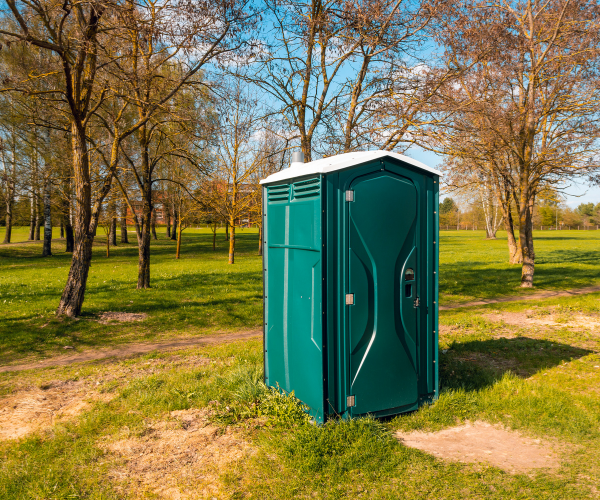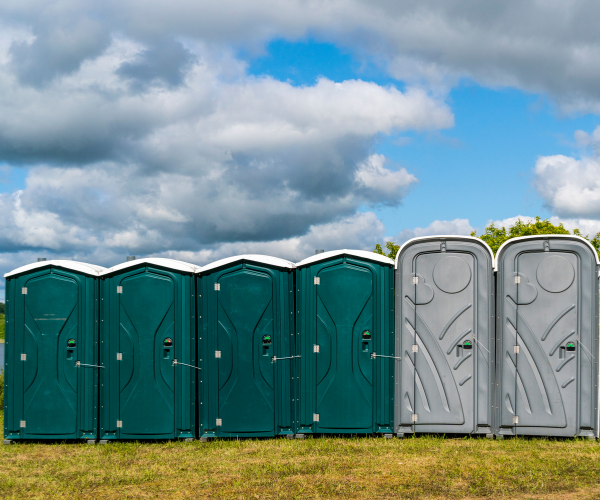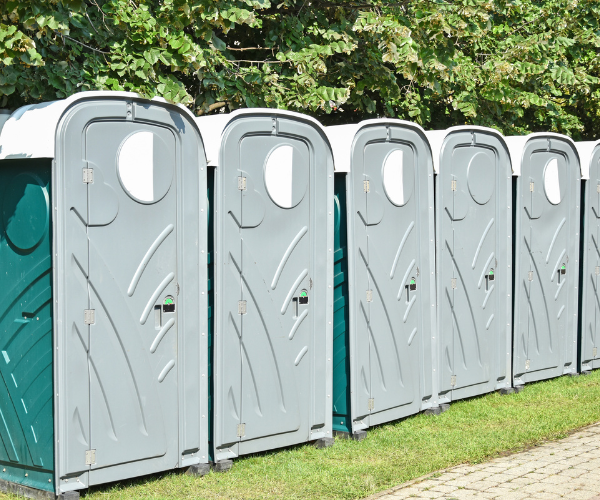Portable Toilets are an environmentally considerate option, playing a critical role in water conservation and waste management. Traditional restrooms use a significant amount of water per flush, which can add up quickly, especially during large events or on construction sites. Portable Toilets, however, use chemical treatments to break down waste without the need for excessive water, making them a more sustainable choice. By minimizing water usage, these units reduce the strain on local water resources, making them particularly advantageous in areas prone to drought or water scarcity. Additionally, modern portable toilet systems are designed to capture and safely store waste, preventing contamination of the surrounding environment and water supplies. This design ensures that waste is processed and disposed of in facilities that comply with environmental regulations, further contributing to sustainable waste management practices. Besides water savings, the materials used in the manufacture of Portable Toilets often include recycled plastics, thereby reducing demand for new materials and promoting recycling. When placed in parks, natural reserves, or ecologically sensitive areas, these units help protect the habitat and maintain the natural beauty of the surroundings. Ultimately, Portable Toilets offer a viable solution to the increased demand for sanitation facilities while supporting environmental preservation efforts.

Portable Toilet Rentals in Levy County, Florida
Call today for a free quote (352) 660-8775
Portable Toilet
Fast, Easy, & 100% Free To Get Started
30 Years Of Experience
For over 30 years, we have proudly served Levy County, establishing a legacy of trust and excellence. Our deep community connections and dedication to quality have made us the preferred choice for Portable Toilets, consistently ensuring customer satisfaction.
Consistent Quality Service
We stand out through our commitment to providing quality service consistently. Each Portable Toilet is meticulously maintained, ensuring a clean, comfortable experience for every user.
Prompt Delivery Assured
We prioritize swift delivery for each rental, ensuring your Portable Toilets arrive on time. Our efficient service minimizes waiting, allowing your events and projects to run smoothly without delay.
Convenient Portable Toilet Solutions in Levy County
Call for a Free Quote Today
(352) 660-8775
Discover the convenience and reliability of our Portable Toilet services in Levy County. As a locally owned business, we take pride in offering dependable solutions tailored for the sanitation needs of construction sites, parties, festivals, and weddings. With a steadfast commitment to quality, we meticulously maintain each unit, ensuring a hassle-free experience from delivery to pickup. Our seamless service extends to nearby areas, solidifying our reputation as a trustworthy choice for all sanitation needs. Whether you're hosting a large festival or an intimate wedding, our portable toilets enhance your event by prioritizing every guest's comfort and hygiene. Trust us to bring convenience right to your doorstep, making your event talked about for all the right reasons.


Standard Portable ToiletOur standard porta john rental units are durable and reliable for any commercial build site, housing development, public works project, or remodel job.Features include dome lighting, grated floors, and an “In-Use” locking mechanism for privacy and comfort.Regularly maintained, inspected, and cleaned by FusionSite at your location.

Wheelchair Accessible RestroomsDeveloped as an alternative to full ADA-compliant restrooms, the Liberty is a spacious, wheelchair-accessible unit that can also be promoted as a family-sized restroom.Includes a patented flat-floor system for easy wheelchair access and maneuverability.Handrails, paper holder, and rotary latch are designed for simple, intuitive end-user operation.

Portable SinkPortable hand washing stations are essential for keeping your work site sanitary and clean.Features hands-free foot pumps, liquid soap, and paper towels.Perfect for job sites without water hookups, these units can handle hundreds of washes between services.
We Proudly Serve
Standard Portable Toilets
Our Standard Portable Toilets offer reliable sanitation solutions for any occasion at Porta Serve in Levy County.
High Rise Portable Toilets
High Rise Portable Toilets provide elevated convenience, perfect for construction sites in Levy County, Florida.
Restroom Trailers
Restroom Trailers in Levy County offer luxury and comfort from Porta Serve for any high-end event.
Roll off Dumpsters
Roll off Dumpsters at Porta Serve provide efficient waste management solutions in Levy County.
Septic Tank Cleaning
Septic Tank Cleaning with Porta Serve ensures your system runs smoothly in Florida.
Grease Trap Cleaning
Grease Trap Cleaning by Porta Serve keeps operations running efficiently in Levy County, Florida.
Fencing & Barricades
Fencing & Barricades from Porta Serve provide effective containment solutions across Levy County, Florida.
Residential Storage
Our Residential Storage service offers secure solutions for household items in Levy County, Florida.
Levy County Sanitation Solutions: Portable Toilet and More
Renting a Portable Toilet with us ensures a smooth and convenient process tailored to your specific needs. Obtaining a quote and arranging delivery is as simple as completing a quick online form or reaching out through our dedicated customer service line. With clear pricing and flexible rental terms, you'll gain access to our reliable sanitation solutions hassle-free. Our team ensures prompt delivery to your location, whether it's a private function or a large public event. Each unit is maintained in pristine condition, ensuring comfort and hygiene for all guests. Count on us to provide a seamless rental experience, so you can focus on what matters most — the success of your event. Experience the convenience and peace of mind that come with choosing our portable toilet services.

Our Portable Toilet services perfectly complement the unique attributes of Levy County. Known for its local charm and natural beauty, such as the beautiful Cedar Key and the popular Levy County Fair, our solutions bolster events with a reflection of the area's vibrant community spirit. Whether it's an outdoor festival amid the scenic landscapes of nearby Manatee Springs State Park or a community gathering at the fair, our portable toilets ensure unmatched convenience and hygiene. Every service we provide in Levy County is designed to meet the highest standards of cleanliness and reliability. Our units are perfect for enhancing guest experiences, ensuring they are comfortable and well cared for during events. From private parties to large-scale festivals, our toilets seamlessly integrate into the atmosphere, adding value and comfort. Choosing us for your sanitation needs means selecting a partner committed to excellence. Our services are tailored to enhance local community events and attractions with high-quality sanitary solutions, making us the top choice for portable toilet rentals in Levy County.
Community's Trusted ChoiceOur company prides itself on being the best choice for portable toilets in Levy County. Over the years, we have established a reputation for reliable service, underpinned by our deep community roots. We prioritize customer satisfaction and offer a range of customized solutions to meet the diverse needs of our clients. Our hard-earned trust is a testament to our dedication to excellence.Unwavering Service QualityProviding clean, efficient, and modern portable toilet solutions is at the heart of what we do. Our units are meticulously maintained and regularly updated to ensure users enjoy a top-notch experience. We understand the importance of hygiene and convenience, making us a dependable partner for all sanitary needs.Enhancing Every EventAt the core of our offerings is a desire to enhance every event with premium portable toilets that complement Levy County's uniqueness. Whether it's a cozy gathering by the river or a bustling festival in town, we provide solutions that ensure seamless operations while boosting your event's appeal.
Reliable and Swift ServicesOur commitment to delivering fast and reliable Portable Toilet services sets us apart in Levy County. We understand the importance of timing and efficiency, ensuring our units reach your site promptly, ready for immediate use.Streamlined ProcessEnjoy a streamlined process from order to delivery. With our skilled team at your service, forget logistical concerns and focus on the success of your event. We pride ourselves on our quick turnaround times and impeccable service standards.Quality You Can TrustEach of our portable toilets undergoes rigorous maintenance checks, guaranteeing they are of the highest quality. Trust us to handle your needs with professionalism and care, ensuring a worry-free sanitation solution tailored to your requirements.
Levy County: More About Our Portable Toilet
Renting a Portable Toilet in Levy County is a straightforward process designed for your convenience. Our website features user-friendly forms located at both the top and bottom of each page to streamline your rental request. Simply fill in your first name, last name, phone number, and email to initiate the process. Alternatively, you can click the 'Get A Quote' buttons situated throughout the site to open a direct portal to our rental services. These buttons guide you to complete the necessary steps for securing your Portable Toilet rental. Each stage of the form submission is designed for simplicity, ensuring that you receive a comprehensive quote promptly. Our detailed response includes complete pricing information, along with potential delivery options tailored to your schedule and event demands. Our customer service team is also available to assist if you require additional support during this process. Whether you need long-term solutions for construction projects or short-term facilities for events, our efficient system alleviates the need for time-consuming rental procedures. Choose us for a seamless experience in securing the ideal Portable Toilet solution for your needs.
When it comes to the delivery of Portable Toilet orders, timing is crucial, and we excel at ensuring prompt and reliable service. Typically, once an order is placed, we strive to deliver within 24 to 48 hours, depending on the specific logistics of your location and the high demand during peak seasons. For organized events and construction projects with set timelines, we recommend ordering well in advance to secure your required units and preferred delivery slots. Our dedicated logistics team meticulously plans each delivery route to maximize efficiency and minimize wait times, with the aim to reach all clients promptly. Transparency in our process means you're kept informed every step of the way, from the confirmation of your order to real-time updates as your units are en route. This commitment to timely service makes us a reliable partner for ensuring your sanitation needs are met exactly when you expect them. Understanding that unforeseen circumstances can arise, our team remains flexible and prepared to accommodate any urgent requests that may come your way. With us, you'll experience the peace of mind that comes from knowing your Portable Toilet delivery is prioritized and effectively managed.
Yes, we are fully equipped to service any type of event or construction project. Our extensive range of solutions covers everything from festivals and sporting events to weddings and corporate gatherings. We offer luxury restroom trailers, standard porta potties, roll-off dumpsters, fencing, barricades, holding tanks, ADA-compliant units, portable sinks, and hand sanitizer stations. Whether it's a large-scale public festival or an intimate family reunion, our units are strategically designed to enhance guest experiences through optimal comfort and sanitation. Our team works closely with you to understand your specific needs, ensuring that we provide customized solutions tailored to each unique event setup. Understanding the diversity of requests, we extend our services to both conventional and luxury requirements, promising clean, reliable units that satisfy all attendees and participants. Our commitment is to elevate your event atmosphere, providing robust support from start to finish. Our team is always available to discuss the specific logistics involved in servicing your upcoming events, guaranteeing an effortless and successful collaboration.

